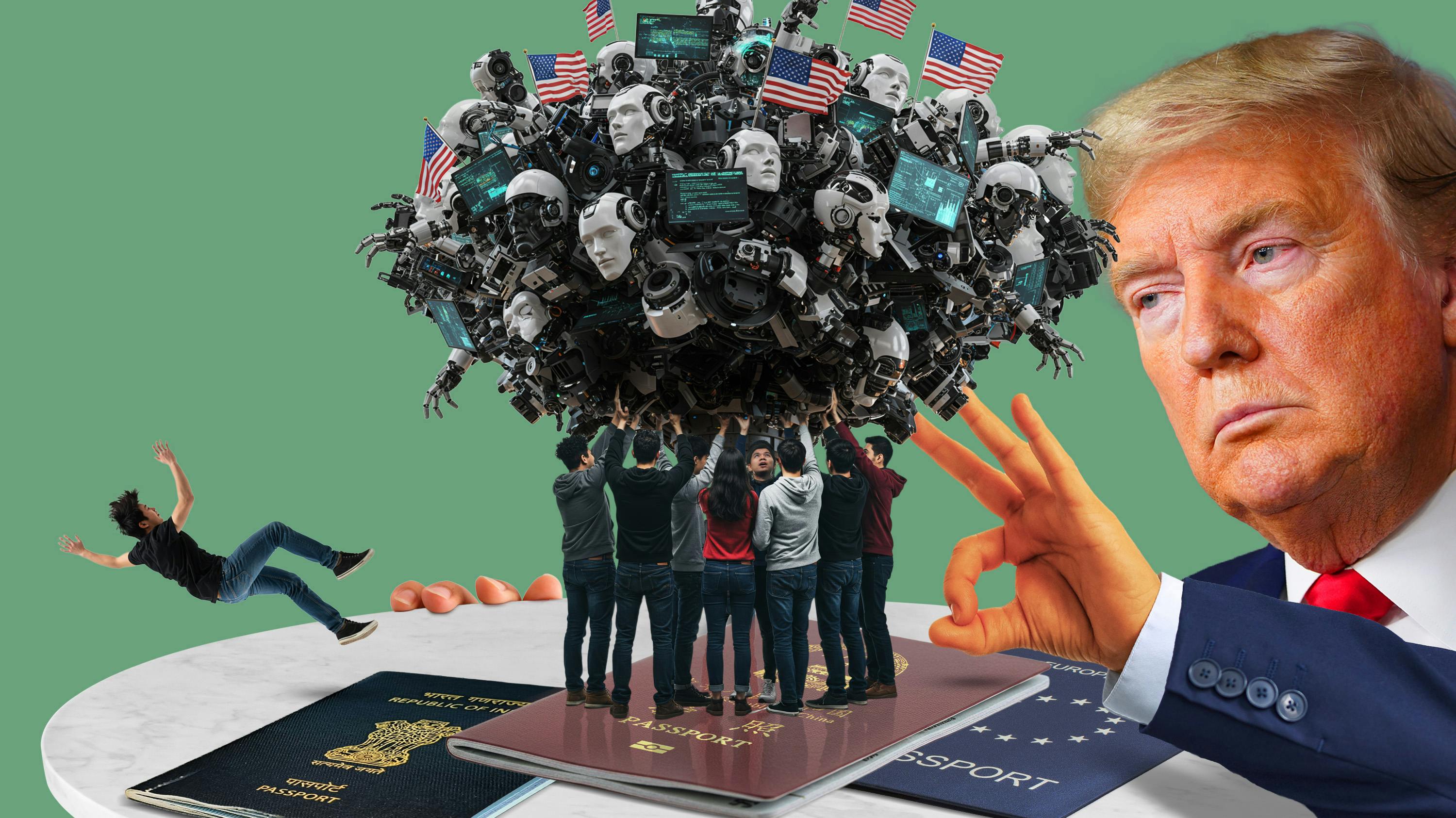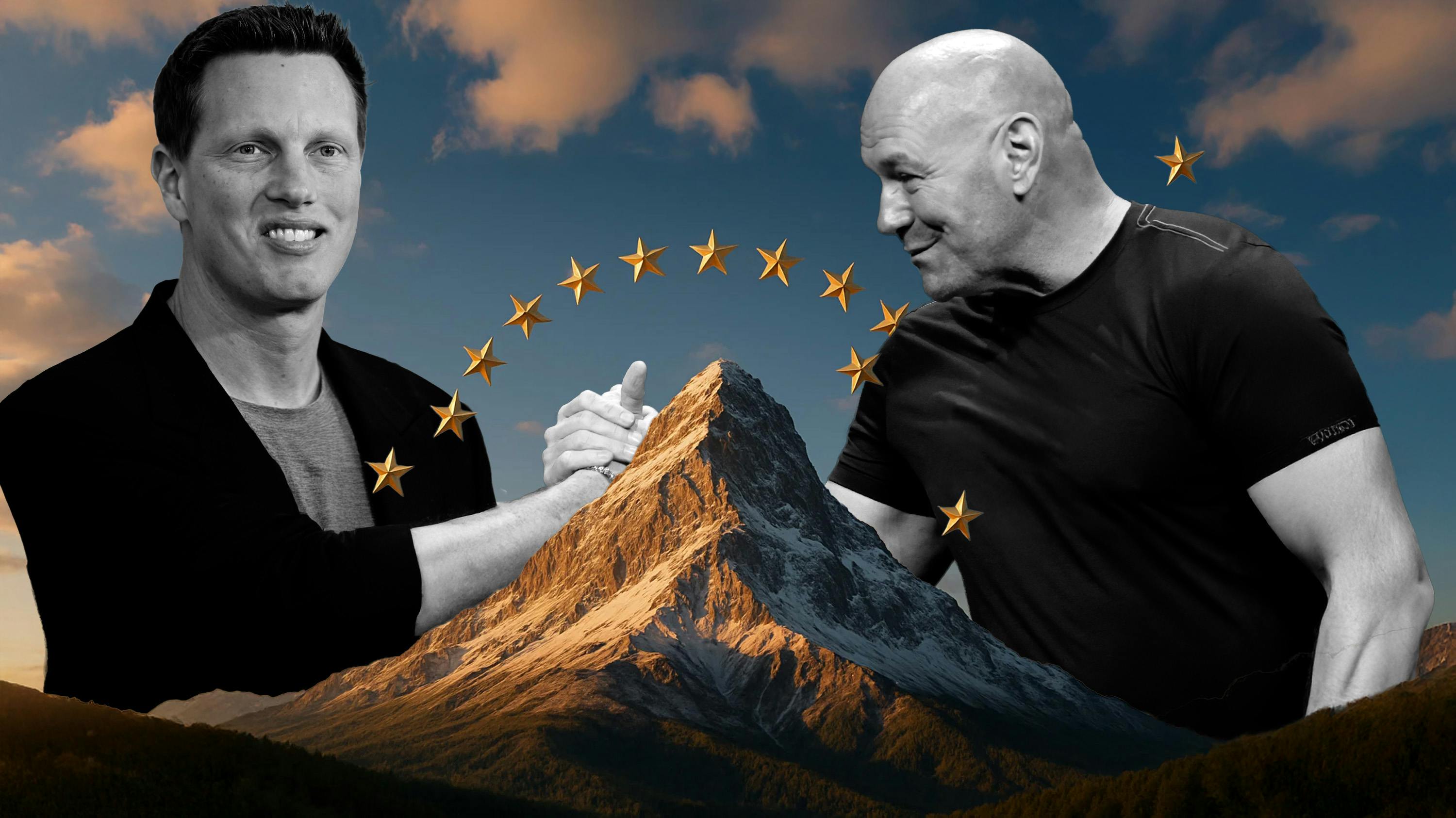| Welcome, Weekenders! In this newsletter: |
| • The Big Read: Foreign researchers weigh AI riches against immigration worries |
| • The Arena: Why David Ellison will want more streaming punch for Paramount |
| • Plus, our Recommendations: “Buzz: The Man & The Moon,” “An Oral History of Atlantis” and “The Gilded Age.” |
| |
| Soon, the greatest challenge in artificial intelligence may not involve making an AI smarter. Rather, it’ll be the difficult choice of choosing a personality to bestow upon it. |
| Sam Altman already faces a version of this task, having once again promised to alter the personality of ChatGPT after complaints that the latest version wasn’t friendly enough. That’s ironic, of course, because Altman earlier this year was pelted with criticism that a previous version was too aggressively warmhearted. |
| Altman’s goal with ChatGPT is pretty straightforward: Get as many people in the world using it—in other words, capture the largest possible market. He and OpenAI seem to think the best shot at winning over such a large swath of users involves making ChatGPT blandly, widely appealing: charming but not too charming, good-natured but not too good-natured. |
| That’s a really delicate balance of qualities. Put another way: They’re after a product with a universally beloved, human-esque consciouness. Well, I know few humans I could describe as universally beloved, so I expect this will be difficult. |
| Right now, mostly everyone in the industry is taking Altman’s approach, trying to develop the same sort of Goldilocks AI. I’m not sure how many such AIs can exist competitively in the same market. Instead, the smartest players in the industry will quickly realize that giving their AIs a definable, marketable personality will be one of the easiest ways to differentiate themselves from competitors. (It’s the smartest thing Elon Musk has done with Grok.) Providing an AI with a precise identity will encourage people to link their own identity to it—just as we already do with so many other products. Someday soon, the AI someone uses might say as much about them as what type of car they drive or what watch they wear. |
| Perplexity’s Nonsense Number |
| Let’s get straight to it: The $34.5 billion Aravind Srinivas’ Perplexity offered to pay for Google Chrome is fake math! He’s never had any real chance of buying Chrome, nor has Google ever had any intention of selling Chrome to him. Every cycle of tech mania has a Srinivas or three; few in the current era can play the media as well as he does—to give credit where credit is due. |
| And look, I speak with real authority on funny numbers: When I worked at Forbes, I once spent several weeks valuing the fictional fortunes of every James Bond villain. I promise you Perplexity’s Chrome bid has less reality than the $6.5 billion estimate I assigned Mr. Goldfinger. |
| Meta’s Latest Addition |
| I’m always saying how much I hate to say “I told you so,” but here I am, obliged to say it again: Robby Starbuck, the anti-DEI crusader I highlighted a year ago, has indeed managed to shove his way into tech land. |
| Meta is reportedly adding him as an AI adviser to stave off a legal battle with Starbuck, who claimed a Meta chatbot defamed him by falsely stating he had taken part in the 2021 U.S. Capitol riots. |
| What does Starbuck know about AI? I’d guess nothing at all—but adding him is still a smart move on Meta’s part. It means he won’t launch a lengthy publicity campaign against the company, possibly encouraging other people to pick up pitchforks, too. And it reflects Meta’s eagerness to quickly extinguish any media crisis in the aftermath of Cambridge Analytica and the Facebook Files, as well as any perception of anti-conservative bias in the aftermath of Donald Trump’s reelection. |
| I doubt Starbuck will have any great sway at Meta, but he’ll definitely see this as a win, which will only embolden him to press further into tech. And while he’s something of a gadfly today, things in Silicon Valley do have a natural tendency to get big fast.—Abram Brown |
| |
|
|
 |
|
| The quiet truth about the artificial intelligence industry in America is that it relies a huge amount on non-American talent. In fact, a great deal of the top talent comes from China, the country seen as our country’s chief adversary in the AI boom. Put simply, AI in the U.S. would stall completely without these immigrants, and they’ve been among the most highly paid AI execs during the recent compensation frenzy. |
| Yet many foreign AI researchers are quite uneasy, our Kalley Huang and Erin Woo report in this week’s Big Read. They face the daunting task of navigating the U.S.’s existing immigration policies—a convoluted system that requires patience, time and luck—and the worry that President Donald Trump will make immigration even more difficult and exacerbate anti-immigrant sentiment. |
| “Even if you’re fully legal, come here invited and making millions, it still makes you wonder if you’re doing the right thing for your family,” said one AI researcher who immigrated from Latin America. |
|
 |
|
| David Ellison, the new owner of Paramount, made a quick splash this week with a $7.7 billion deal for UFC’s media rights. But he’ll likely need to keep shopping if he really wants to push Paramount into streaming’s big leagues, according to our Sara Germano, who leads The Arena, Weekend’s new franchise on the business of sports. |
| Abram Brown is the editor of The Information’s Weekend section. Reach him at abe@theinformation.com. |
| |
 |
| Listening: “Buzz: The Man & The Moon” (iHeart) |
| If the next few years really do usher in a new space age, I wonder how much we’ll reconsider the legends from the first one. “Buzz: The Man & the Moon” gets to the task sooner than everyone else, retelling Aldrin’s life with actor John Lithgow’s able narration. The 11-episode series rockets along nicely, courtesy of creator Stephen Kronish, longtime TV producer of “24,” the spy thriller that often excelled at making the audience feel like they’d been shoved into a tiny can and blasted into space. |
| Reading: “An Oral History of Atlantis” by Ed Park |
| Over several decades, Ed Park, the fiction writer, former Village Voice editor and onetime Amazon executive, has displayed a remarkable consistency as an absurd delight. His first novel, “Personal Days” (2008), satirized cubicle culture, coining such phrases as “deprotion,” a “promotion that shares most of the hallmarks of a demotion,” and his second, “Same Bed Different Dreams” (2023), reimagined Japanese-occupied Korea during World War II and became a Pulitzer Prize finalist. His latest, “An Oral History of Atlantis,” a collection of short stories, looks at the modern world with a similar amount of wit and mischievousness. Many of the pieces deal with technology: In “Eat Pray Click,” for instance, a frustrated high-minded author hacks a Kindle into a Dadaist contraption, while “Slide to Unlock” reassesses the place computer passwords hold in our lives. There’s also the downright Rothian “An Accurate Account,” in which a playwright uncle plays sage to his nephew, and, of course, the story that gives the collection its name, a dystopian tale of a New York wracked by a deadly disease, MtPR. With a wink, Park specifies the acronym’s pronunciation: “metaphor.” |
| Watching: “The Gilded Age” (HBOMax) |
| As a Julian Fellowes devotee, I admit that the man could serve up the cinematic version of a kidney pie and I’d gladly tuck in. But not everyone has the same appetite—I get it. Dramas like his “Downton Abbey” tend to unfold at the pace of a garden stroll, and so did the early seasons of his latest series, “The Gilded Age,” another examination of upstairs-downstairs life—this time in 19th-century New York. (Season 2, for instance, mostly revolved around opera boxes.) Commendably, the plot moves at a more brisk clip in the recently concluded third season, with several attempts at self-resurrection, at least one act of social hari-kari and more than one death. As always, a Fellowes drama is at its most splendid when it spills a little rat poison.—Abram Brown |